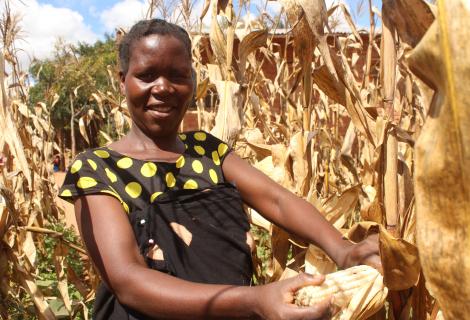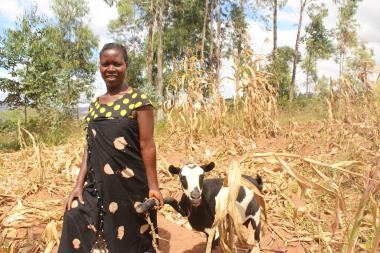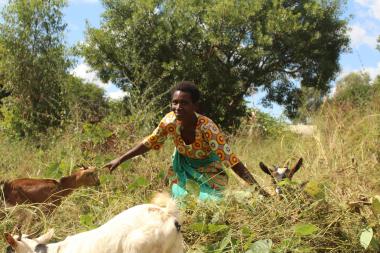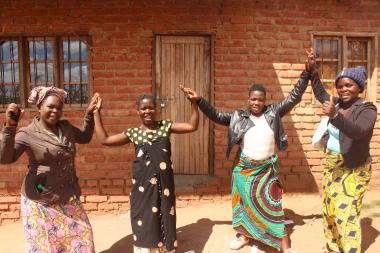Fighting poverty through ‘Tilimbike’ project

Project boosts food security and asset ownership among members
Despite employing 65 percent of Malawi’s workforce, and accounting for 30 percent of the country’s Gross Domestic Product, agriculture in Malawi is associated with several challenges that include unreliable rainfall patterns due to climate change and high cost of farm inputs. The situation has pushed most Malawians into perpetual food insecurity, a major driver of poverty in the land-locked southern African country

The latest Malawi IPC Chronic Food Insecurity Report says “a third of Malawi’s population – 5.4 million out of 16.6 million people – is on the brink of extreme hunger due to poverty and recurrent shocks to the food system.”
But the situation is far from disparate for a 32-year-old Feredina Matiana of Kapezi Village in Dedza District, thanks to a ‘Tilimbike’ Project being implemented by ActionAid Malawi with financial support from Financial Access for Rural Markets, Smallholders and Enterprises (FARMSE). The goal of the project is to improve rural financial access to existing, new, and innovative informal and formal Community based Finance Organisation's products and services for poor but food secure households, households vulnerable to poverty, and resilient households.
When the Tilimbike project was introduced in Traditional Authority Kasumbu, Dedza, Matiana and eight other members under Maziko Village Savings and Loans (VSLAs) in Sompho Village mobilized themselves to get further support on how best to run their group.

The project supported Maziko VSLA with restructuring and training in leadership, group dynamics, savings and loans. Following the support from the project, the group’s membership grew from nine in 2020 to 26 members in 2022. A total of 14 are women while eight are men.
Matiana explains that, following the VSLA’s restructuring in 2020, the group became productive and beneficial to her family.
“With the support of Tilimbike project, we became a more focused and ambitious group. Our minimum share to the group was raised from K100 to K500 and all members are now religiously adhering to the group rules,” says the married mother of three.
Matiana narrates that in May, 2021, she borrowed K70,000 from the group which she invested in potato farming on a one-acre piece of land. Matiana also runs a tomatoes business which helps her pay back the loan and the VSLA share worth K2000 weekly.
“In December, 2021, I shared out K100, 000 which I used to buy a goat, five iron-sheets for the house and fertilizer for maize cultivation. For the first time since I joined the VSLA group in 2017, this was my best year,” she testifies.
Matiana hopes that by 2023 she will buy a commercial motorbike as one way of making more income for the house.
Matiana is not the only one reaping the benefits of Tilimbike project.
In Traditional Nyambi, Machinga, a 46-year-old Mary Chipojola, now has seven goats which she bought with VSLA share-out and business inspired by the project.
“My husband dumped me in 2013 and left me with six children. Life was hard, but thanks to Tilimbike project, I am now able to feed and educate my children,” says Chipojola, a member of Zipatso VSLA in Napome Village.

Matiana and Chipojora are simply two of the 37,500 people across Dedza and Machinga district the project is working with to uplift them from hunger and poverty. A total of 1,639 VSLAs have since 2020 been established by the project.